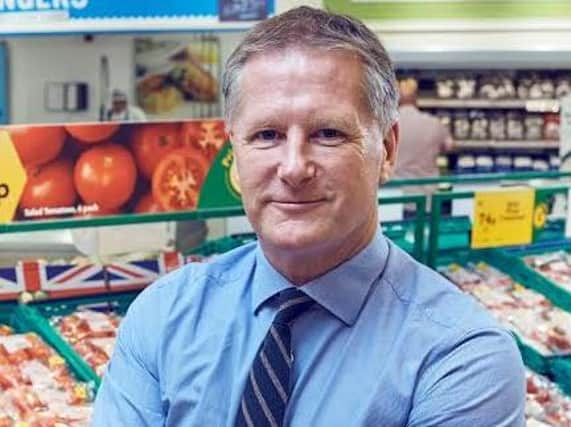UK will never become self-sufficient in food production after Brexit


A number of supermarket chains are looking at ways to increase their stock of British products to avoid new restrictions on imports.
Bradford-based Morrisons is calling on food entrepreneurs to get in touch as it looks to increase the level of British goods in store following Brexit.
Advertisement
Hide AdAdvertisement
Hide AdMorrisons’ chief executive, David Potts, said: “Two thirds of what we sell is British and I intend it to be more. We are the UK’s biggest producer of food.
“We are going to look for British entrepreneurs who have started their company in Britain despite recessionary times. They should call me and say: ‘I’ve got this great product.
Do you want to sell it?’ If it’s legal, decent, honest and there’s consumer demand, the answer will be yes.”
Thomas Brereton, senior retail analyst at GlobalData, said: “As the saga of Covid-19 rolls on, alongside dealing with the impact of a rushed Brexit deal, Morrisons must play to its strengths in 2021, particularly emphasising to customers the extent of its local produce sourcing compared to competitors.”
Advertisement
Hide AdAdvertisement
Hide AdHowever, Kantar said Britain faces too many obstacles for it to become self-sufficient for food.
Fraser McKevitt, head of retail and consumer insight at Kantar, said: "Every retailer, including Morrisons, has talked about selling British produce. The facts of the matter are that we are reliant on imports as a nation because we have a relatively large population for our land mass. Our climate does not allow for year round growing of fruit and vegetables.
"We don't produce enough lamb and other meats in this country for the demand. To have more British produce is a great aspiration, but we are never going to be self-sufficient."
Mr McKevitt said retailers face a number of hurdles following the end of the EU transition period at the end of 2020.
Advertisement
Hide AdAdvertisement
Hide Ad"There is a lot of talk about the logistical challenges of bringing things in from Europe," he said.
"There have been some availability problems, especially early in January, so that would seem to be a consequence of Brexit. Retailers have had to deal with the challenge of getting supplies in through the ports.
"What I'm hearing is that retailers have had issues with European drivers not wanting to come and do British jobs because of the fear about not getting back into France. It's the extra paperwork and the bureaucracy of getting things into the country."
He said it is too early to tell whether these challenges will lead to higher supermarket prices.
Advertisement
Hide AdAdvertisement
Hide Ad"We may see the extra cost of logistics, the extra paperwork, the extra time at the port, which all adds up to money," he said.
"Shifting hundreds of lorries - we could see that flowing into prices in the coming months, but we don't know yet."
Comment Guidelines
National World encourages reader discussion on our stories. User feedback, insights and back-and-forth exchanges add a rich layer of context to reporting. Please review our Community Guidelines before commenting.